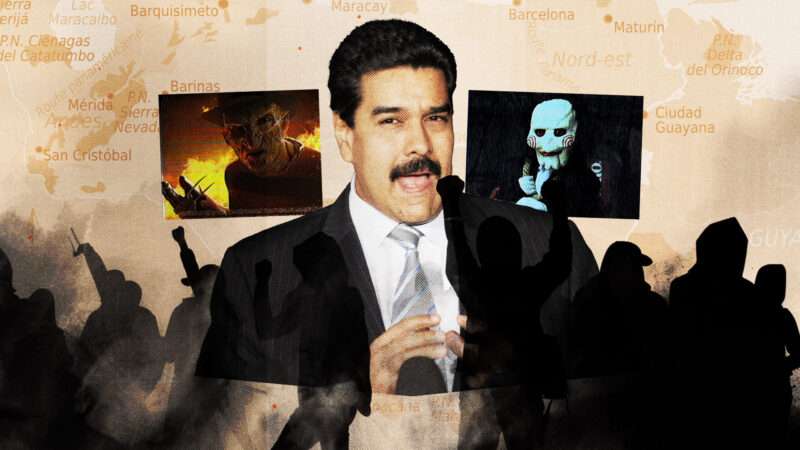
Nicolás Maduro claimed victory in the presidential race in Venezuela once again, but voting tally receipts collected and published online by his opposition reveal a very different outcome. In response, Maduro's regime has unleashed a brutal crackdown on dissent throughout the country.
As part of "Operación Tun Tun" (Operation Knock Knock), the regime is showcasing its crusade against dissent on social media and national television. Videos typically begin with footage of a protester, followed by music from A Nightmare on Elm Street and scenes of heavily armed officers detaining the individual. Reports indicate that detainees have been subjected to torture, cruel treatment, and drugs to extract false confessions.
The head of the Special Affairs Division of the Directorate-General of Military Counter-Intelligence (DGCIM), Alexander Granko Arteaga, routinely posted such videos, often featuring clips from the horror movie Saw, until his Instagram account was taken down. Maduro even mocked the situation on TV, singing, "Knock knock, who is it? Peaceful people. Don't be a crybaby, you're going to Tocorón," referring to a Venezuelan prison.
Venezuelans who dare to speak out face immediate persecution. María Oropeza, a libertarian activist with the Ladies of Liberty Alliance (LOLA) and campaign coordinator for the opposition, became a victim of Operation Knock Knock. "The same day that Maria posted the video complaining about the government persecution, she herself became another victim," Ana Rizo, a LOLA activist in Canada told Reason.
URGENTE ????
Funcionarios de la DGCIM acaban de secuestrar a @mariaoropeza94 en su residencia en Guanare, Portuguesa.
El momento donde ingresan forzosamente a su vivienda quedó grabado en un Instagram Live.
Le dijeron que la llevarían a Acarigua-Araure. pic.twitter.com/gchZgOl55q
— César Báez ???????? (@cesarbaezc) August 7, 2024
On August 6, Oropeza released a video condemning Operation Knock Knock as "a witch hunt conducted by a regime that lost the elections." Later that day, she live-streamed armed men surrounding her house and attempting to force their way in. A female officer, identified as Daisy Zambrano, instructed her to come out "to talk," but Oropeza refused and requested a warrant. Moments later, the officers forced their entry with a crowbar and removed Oropeza from her property.
"It's distressing to see someone you know become a victim of such a situation," says Rizo. After more than 48 hours with no information about her whereabouts, the regime released a video showing the DGCIM entering Oropeza's home, then taking her off a plane at an undisclosed location and pushing her into an armored vehicle.
Oropeza's mother, Flor Oropeza, claimed police officers denied any information on her daughter's whereabouts.
The government reported over 2,000 arrests in less than a week, targeting both opposition street protesters and individuals discovered with messages supporting the opposition on their phones. Foro Penal, an organization that provides legal assistance to victims of Venezuela's political persecution, has confirmed 1,263 detentions, including 114 minors. And Provea, a human rights organization, reported over 24 deaths in the post-electoral protests. Many victims, like María Oropeza, remain unaccounted for.
Despite the extreme repression, the Venezuelan opposition continues to demand that Maduro acknowledge the true results of the July 28 election. Meanwhile, Brazil, Colombia, and Mexico—countries with leftist governments that have ties to Maduro—are leading high-level international negotiations to persuade Maduro to accept his defeat.
The post Venezuela's Repression Is Modeled on Horror Movies appeared first on Reason.com.







